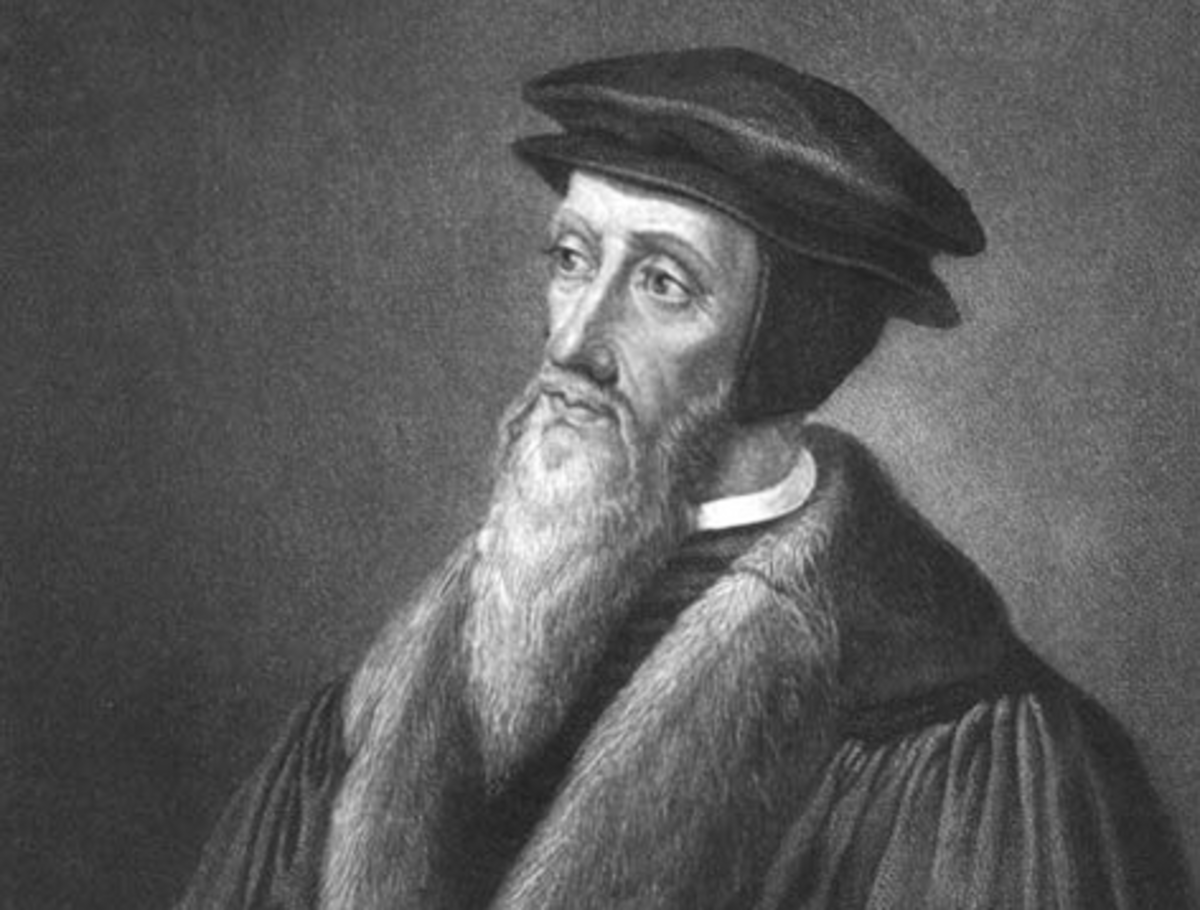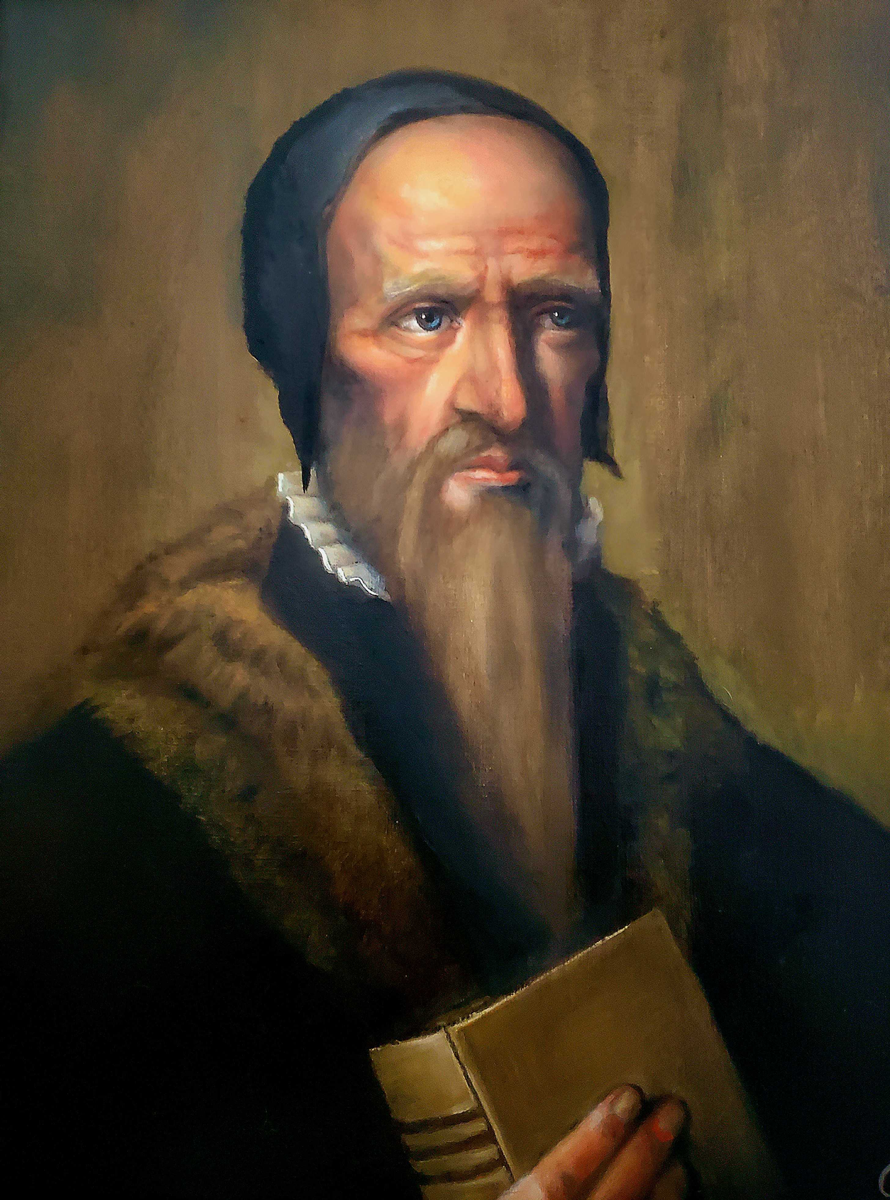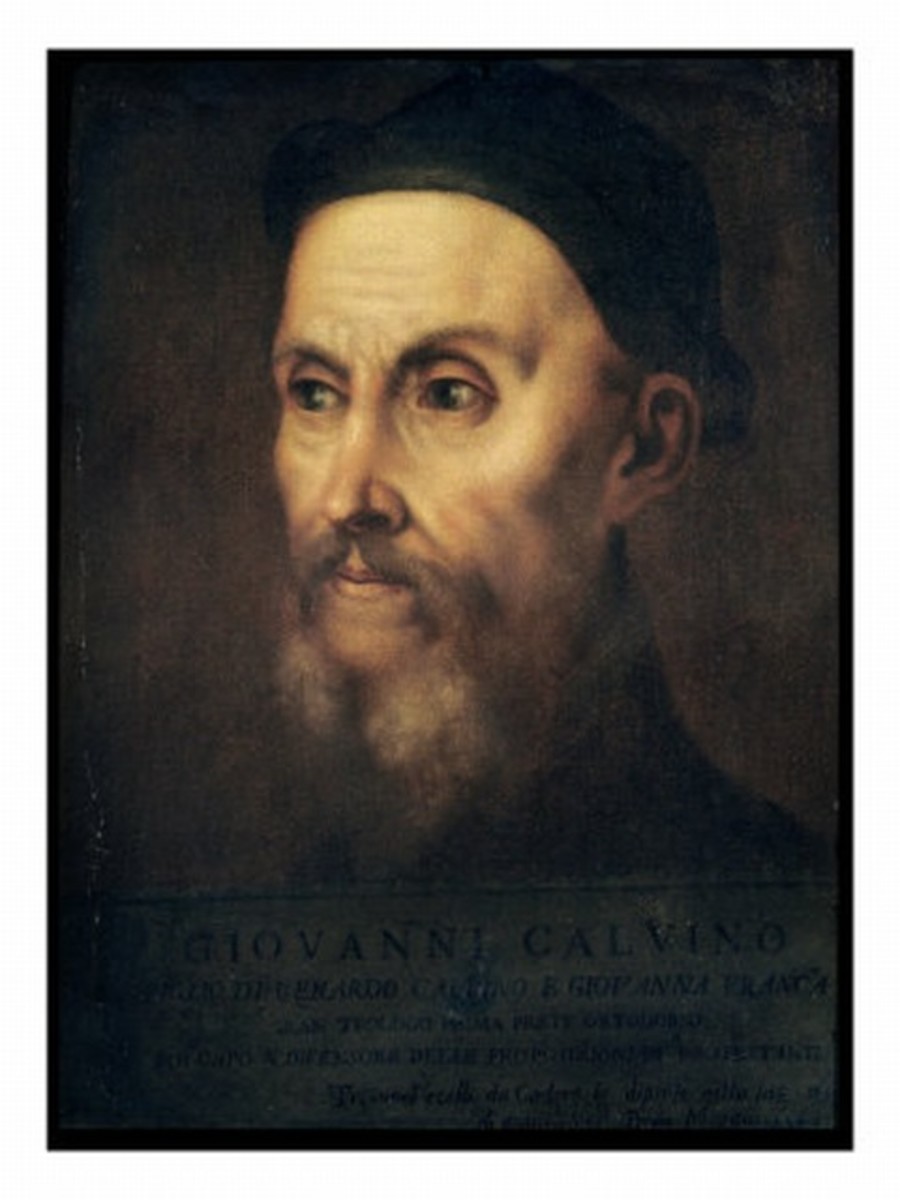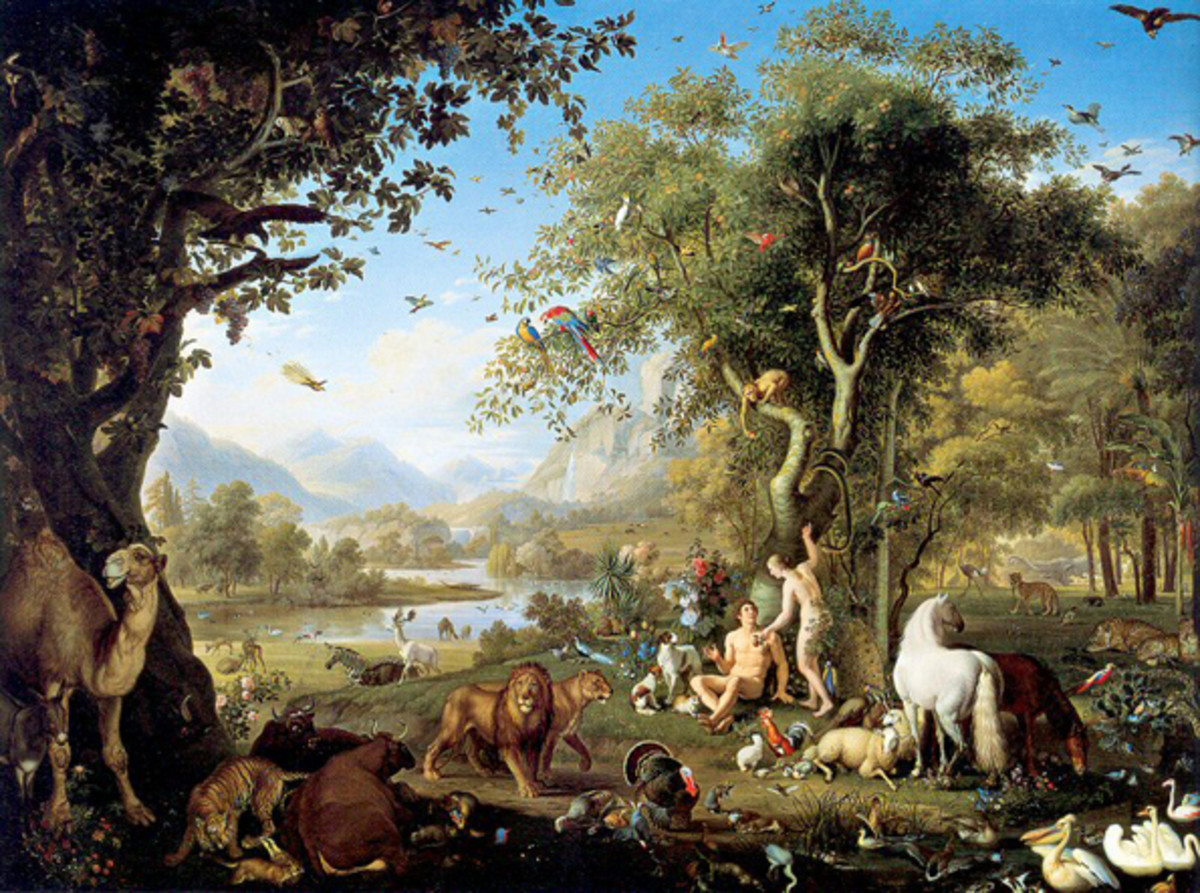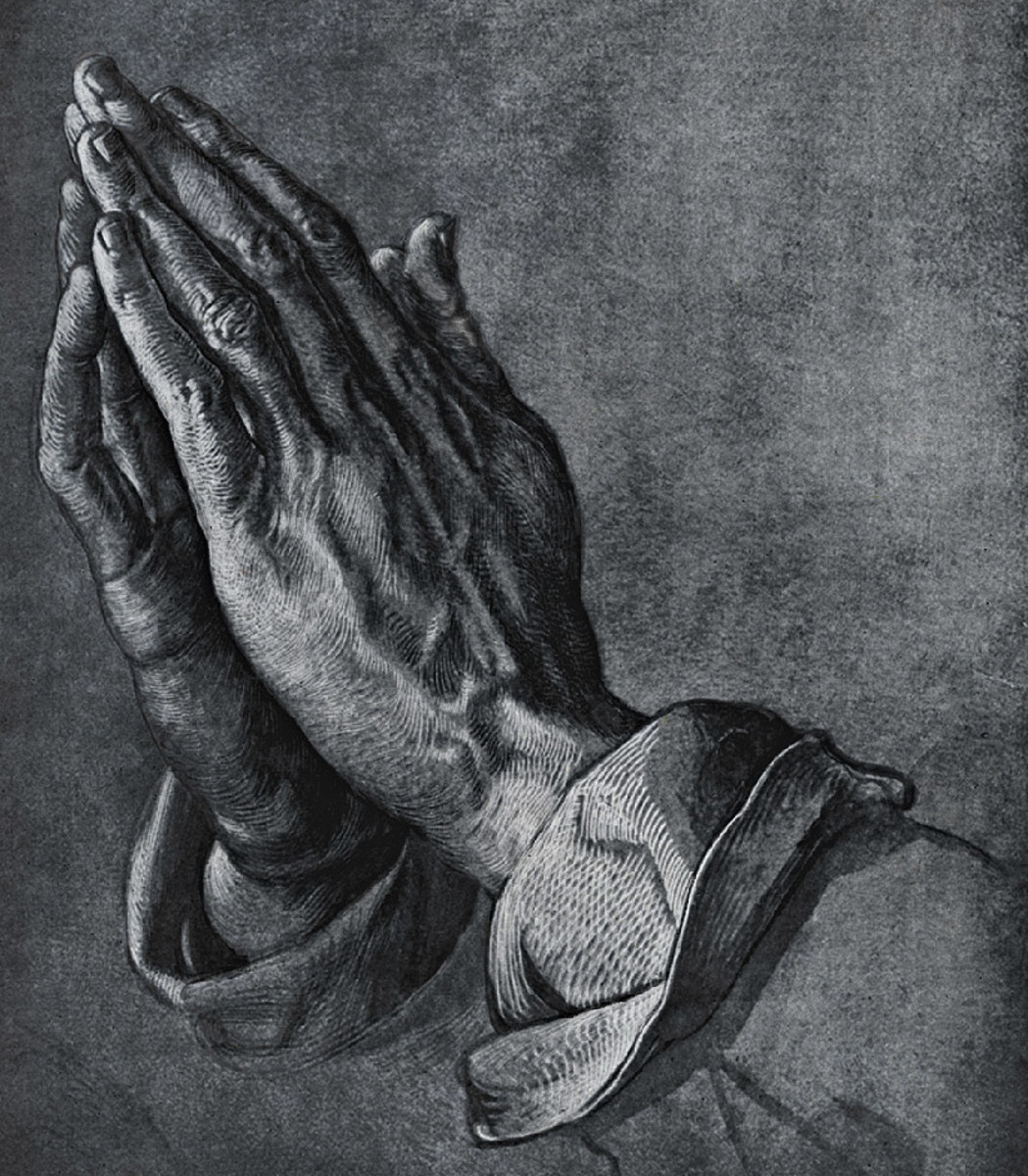Must A Christian Be Either A Calvinist Or An Arminian?
Answering the question - "What is Arminianism and is it Biblical?"
Arminianism is one of two possible ways to view a, perhaps THE, central idea of the Christian gospel - to know what Arminianism is and if it's Biblical, we need to cover a bit of history and theology . . . this will not be a thorough treatment of the history and theology behind the question, but a brief survey of the history and theology that will lead us to answering the question at-hand.

Christian theology can be very definitively divided into two opposing views
There are many issues and ideas that divide Christians along both theological and church polity lines. Regarding church polity the major division is, of course, between Roman Catholics and Protestants; Roman Catholicism maintains a priesthood and celebrates the mass - Protestants ordain servant/teachers and participate in a worship service. There are many other practices one could point to that mark a difference between Romanism and Protestantism, the celibacy issue, confession, sacraments, etc, but whether on Sunday you attend a mass conducted by a priest or worship together under the oversight of a minister is the giant and real divide.
Theologically, there are of course many, many doctrines that a great variety of denominations see differently. However, from the start of the New Testament church Christian theology can be very definitively divided into two opposing views of a central point of teaching that informs all other doctrine - if you are a Christian then you are either an Arminian or a Calvinist, even if you are unaware of the teaching of either, and even if you resist the label and insist that you 'only follow the Bible' and not the teaching of any man you still are either an Arminian or a Calvinist. These two theologies represent the two sides, the 'yes' or 'no', of a question that only has a 'yes' or a 'no' answer . . . depending on how you answer the question, you fall on either the Arminian side or the Calvinist side of the issue. If you are a Christian, you are either a Calvinist or an Arminian whether you know it or not.
Does man have 'free will' or does God save those He determines to save
First, some background information: John Calvin was a French reformer and theologian and Jacob Arminius was a Dutch reformer and theologian. They were near contemporaries, Arminius was not yet 5 years old when Calvin died. Calvinism was the dominant theology of The Reformation - among the list of the great reformers including Calvin, Luther, Knox, Zwingli, Bucer, Melancthon, Bullinger, etc, etc, all were Calvinists. In fact, prior to the 20th century, 'Calvinism' was just about synonymous with 'Christianity' - the Puritans were Calvinists, the modern missionary movement was Calvinistic, the 18/19th century Evangelicals were Calvinists, etc.
I referred to those who are quick to assert that they 'only follow the Bible' and not the teaching of any man - let me now preface my direct attention to these two competing theologies by reviewing some of the misinformation behind them first; perhaps the most common misapprehension about Calvinism and Arminianism is that John Calvin devised or concocted Calvinism and Arminius devised or concocted Arminianism. The ideas articulated in these two theologies predate John Calvin and Jacob Arminius all the way back to the beginning of any form of Christian theology. To assert that Calvinists are people who follow the teachings of John Calvin instead of the Bible is simply an ill-informed notion. If the Bible teaches that Jesus of Nazareth was executed and rose from the dead, and that's what the pastor of your church teaches as well, does that indicate that you follow the teaching of your pastor instead of the Bible?
While each theology has involved particulars, collateral ideas, and consequential implications, most people have their attention on one idea when they talk about Calvinism vs Arminianism, the "central point of teaching" I referred to above - 'free will'. Both theologies start with and necessarily return to this paramount point, and the question that divides Christians and identifies you as falling either on the Calvinist side or the Arminian side; does man have 'free will', in this sense - does God save those He determines to save or does God make salvation possible for all, and those who, exercising their 'free will', choose to 'accept' it are the ones who obtain it? As I said, the teachings that both Calvin and Arminius promoted were not new religious ides that they came-up with, but these two opposing views had battled each other from the beginning.

Man was created with free will, but what was the result of man's fall?
The New Testament itself teaches that men are saved by God's grace and not by anything they do or are or accomplish, etc. That is, in fact, the very message of the gospel. The text of Scripture tells us that it is not even our faith that saves, but God's grace alone. Let me very briefly layout what I believe is the false course that people follow to arrive a false notion of the gospel message; God did indeed create man with a free will, and there was a time of law, a time when man's free will choices determined his relationship with God. The first mistake many make is identifying the Old Testament as that period of the law . . . because God's law was delivered through Moses to the Hebrew people and they lived under it until the arrival of Jesus, the Messiah, and because that period is the period covered in the Old Testament, many Christians assume that man was in a legal relationship with God throughout the Old Testament until the New Testament - but man's legal relationship with God ended when man was expelled from the garden.
Man was created with free will and man freely chose to disobey, he broke God's law and his punishment was expulsion from the garden and death. But God promised man a Savior would come and He established and enacted a path, a way preparing for the coming Messiah. Man was under a curse of, the penalty of, the law he had broken, but God announced a way of redemption . . . God graciously, under no requirement or obligation to do so, determined to not leave men to perish but to freely grant them a pardon and eternal life. The law, the sacrifices, all in the Old Testament was preparing the way for the Savior . . . the law was never given as a means to save anyone, the sacrifices did not actually cleanse anyone from guilt, etc - these were all types and figures of the real salvation to come.
This is why Jesus was so relentlessly at odds with the most religious men of His day - they taught that obedience to the law was the way of salvation and Jesus was telling them that, while they thought they had life in obedience to the law, it was the law that was pointing them to Him, the real source of eternal life. The purpose of the law was to demonstrate to us our need of a Savior, the law itself is part of God's gracious work of salvation - man was under a legal relationship with God in the garden, since the expulsion and all through the Old and the New Testaments until today man is under a gracious relationship with God. Man had free will and he chose to disregard God and assert his own order, under the legal relationship with God man expelled from paradise - the first point that both Calvinism and Arminianism confront is, what was the result of man's fall.
Neither John Calvin nor Jacob Arminius concocted a new teaching
As I said, the ideas articulated in these two theologies predate John Calvin and Jacob Arminius all the way back to the beginning of any form of Christian theology. We've seen how, in the New Testament itself Jesus is (and later His apostles are) challenged that God's grace is not sufficient, that God may be willing to save but it still requires man's obedience for men to obtain salvation. Paul argues the case that, because of the fall and the corruption to man's nature, men are not able to obey God or even to cooperate with God in anyway, that salvation is wholly God's work and is based on His own determination and not at all based on anything He sees in man. This dissension over the nature of man and his ability or inability to participate in his own salvation continued from the New testament throughout church history.
The ancient church fathers labeled those who taught that man maintained a 'free will' and the capacity to obey God's call to repent and believe as heretics. Eventuality the various ideas behind the two opposing views were organized and articulated by Augustine and Pelagius . . . 'Calvinism' and 'Arminianism' were, at their time, the newest name for 'Augustinianism' and 'Pelagianism'. Later (in the 18th century) John Wesley's name was attached to the Pelagian/Arminian view while Johnathan Edwards' name was attached to Augustinian/Calvinist view. So, neither John Calvin nor Jacob Arminius concocted a new teaching, Calvinists don't set their Bible aside and follow Calvin instead . . . in fact, the teaching that has come to be called 'Calvinism' is also referred to as 'Reformed Theology', 'Covenant Theology', 'Puritan Theology', etc. John Calvin never heard the term 'Calvinism' let alone came-up with it . . . even the famous so-called 'Five points Of Calvinism' were not a product of the hand of John Calvin.

Calvinism doesn't assert that because of the fall man lost his 'free will'
So we need to recognize that Calvinism is not ideas that John Calvin introduced to replace the Bible - Calvinists are historically men who follow the teachings of the Bible and not the teachings of men. Next we must understand what we mean when we talk about 'free will'. Many will assert that, very basically, Calvinists are the ones who don't believe in 'free will' and Arminians are the ones who do believe in 'free will' - that is very misleading. First we need to agree on what we mean by 'free' and what we mean by 'will' . . . this may seem too excruciatingly apparent to give any attention to, but bear with me for just a moment.
Theologically, when we say 'free' we mean to indicate unrestrained and uncoerced, that no external person or force is prohibiting you or compelling you to a particular action . . . and we live under a condition that seems to manifest that. I could finish typing the rest of this sentence right now, or I could pause for just a moment to sip my coffee, or I could set it aside and come back to finish it later, etc - I have 'free will', there is nothing making me do what I choose to do or stopping me from doing what I choose to do. However, 'free will' does not mean I can do anything I want, I mean, if I might prefer to float rather than walk my 'free will' does not provide me a capacity to do so. 'Free will' means that, within the nature of our being we own a capacity to make real and consequential choices. Calvinists believe this just as much as Arminians.
What we need to consider is, what exactly is "the nature of our being". As we said, God did create man with a 'free will', He gave us a capacity to make real and consequential choices. As long as man was obedient to God man was in fellowship with God, God delighted to walk with Adam in the garden because God is love and Adam was with God in love - had Adam been selfish and deceitful and arrogant and unkind, etc, then God (who is Love) could not be with him. When Adam eventually rebelled and disobeyed God, God, perfect in His love and holiness, could no longer walk with Adam's deceitfulness and arrogance, etc, and so Adam was ejected from the garden and his relationship with God was broken.
No longer in fellowship with God, but under condemnation, what became of man's nature, what was the result for man's character by God withdrawing from him? The Bible says that man became only evil continually, so evil that God had to wipe man off the face of the Earth and start over giving men His law and sending prophets, etc. Calvinism doesn't assert that because of the fall man lost his 'free will', that God somehow just reached down and removed 'free will' from man - Calvinism asserts that man is fully free to make any choices he wants, and that the Bible is clear that the choices we want to make are only evil continually.
Even the sweetest old grandmother who gives her last penny to charity is not without sin, there is some sense of self-satisfaction or some expectation of divine reward or the praise of others, etc, in her action. She's great, a finer woman than I will ever be a man, what she did was a good thing to have been done, etc . . . but the comparison here is not between a religious old grandmother giving to charity and the rest of us or any notion we have a goodness - the comparison is between her and God. Is she, or anyone, so without self-interest, so without doubt or fear, so flawless in all she does, so perfect in all love in all things that she 'deserves' fellowship with God?
The Calvinists believe the Bible when it declares that men are dead, spiritually dead because of sin. Calvinists don't think man has had his 'free will' removed, Calvinists simply believe that given the choice man will always choose 'self' over love, that God says "whosoever will" and that all those who God Himself gives His own Spirit to then have a capacity to resit their own corruption, their own arrogance, fear, doubt, etc, to 'will' to repent and believe. So, it's not that we can't - it's that we don't. Our will is not removed - it's corrupted by our own wicked appetites and inclinations . . . according to Scripture we have no more capacity to turn from sin and trust God than we have a capacity to float rather than walk. God doesn't prevent some who want to come to Him from coming and force others who don't want to come to Him to come anyway - the bottom line is that no one wants to come, yet, God saves men according to His plan and purpose.
We are not saved by faith
So, must a Christian be either a Calvinist or an Arminian? As I suggested there is more to Calvinism than this one issue of man's 'free will' . . . it was the Calvinists who provided us our doctrines (not the truths, the truth of these teachings are provided by God in His word - the doctrines are our understanding and articulation of God's truth) on the authority and infallibility of Scripture, the deity of Christ, the atonement, faith, grace, etc, etc. But if we are considering the teaching of man's free will and God's sovereignty in our redemption, then there are two sides to come down on, it comes to a 'yes' or 'no' question.
So, let's consider the question from post-salvation rather than everything leading up to salvation . . . so, setting aside ideas of 'do I have free will or not' and 'is my nature fallen and corrupt or not', etc, consider this question as a saved Christian; 'I heard the gospel and asked God to save me - did I save myself because I believed or did God save me because Jesus died in my place? Was it my own faith that saved me or was it Jesus' sacrifice that saved me?" If you think it was your own faith that saved you, if you think God responded to your belief by saving you, then you fall on the Arminian side of understanding your salvation (and, you could lose your salvation if . . .). If you think that it was God's grace that saved you, if you think you were responding to God's call when you believed, then you fall on the Calvinist side of understanding your salvation (and, you have eternal life and will be forever with God).
Whose work accomplishes salvation, that becomes the question; does God save you because of something you do, or do you get saved because of something God did . . . every Christian comes down on one side or the other of this question, every Christian, whether they know it or not, is either an Arminian or a Calvinist. The Arminian says that God makes salvation possible - the Calvinist says that God actually saves. The Arminian says our salvation depends on our choice - the Calvinist says that our salvation depends on God accomplishing the atonement in Jesus. The Bible is clear; we are not saved by faith we are saved by grace through faith . . . our faith (rather than obedience or rituals, etc) is the means by which God communicates salvation to us, but it is Jesus' sacrifice that saves us. We don't get salvation because we make the right choice - we get salvation because God freely gives it us . . . that's why it's called a gift.


